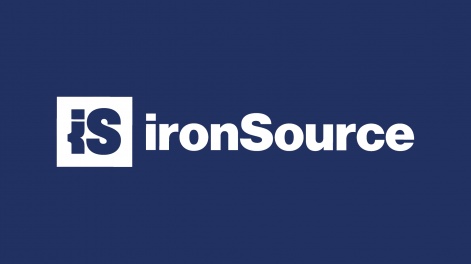We are in a pivotal moment. For decades, no matter the industry, people of colour have suffered through a lack of opportunity and a lack of respect, leaving them stuck playing second fiddle throughout their careers.
The games industry is no different, and here at PocketGamer.biz we wanted to do our part and help bring attention to the many incredible people of colour that help make up this sector. That is why we are committing to a new long-term regular feature to spotlight these people and their careers.
So, welcome to our 'POC in Mobile' series, where discussion about finding a place in the games industry, the various challenges faced as a minority, and what truly needs to be done to make games more diverse will be the focal points of conversations.
This week, we spoke to IronSource vice president of new business Rujul Patel about why there is a lack of diverse perspectives in tech leadership and what recruiters should be doing to help combat this.
Can you start off by telling us about your role in mobile games and what it entails?
Rujul Patel: My primary responsibility is to drive adoption of IronSource’s growth platform across mobile game developers of all sizes, ranging from IP/console-based studios to indie studios.
I see very few South Asians or other people of colour outside of product and technical rolesRujul Patel
I also manage a team that helps with the initial onboarding, and UA and ad monetisation strategy creation for developers who are new to our platform. Overall, my goal is to provide the support developers need to transform their games into profitable, scalable businesses.
Why did you want to work in the mobile games industry?
The amazing growth trajectory of the industry is what attracted me to gaming almost a decade ago. Already back then, gaming was the fastest-growing vertical when looking at user time spent on smartphones, besides of course social and communications apps. The freemium model was probably the most important factor in driving that growth.
And unlike console games, mobile had a very broad appeal across all types of users irrespective of their gaming skills. The combination of those two factors made me realise the importance and need for platforms and technologies which could help sustain and grow that ecosystem. That’s why I made my initial foray into the mobile games industry.
How would you recommend people get started in games? Any tools or literature you would advise?
There are many ways to get started in this industry - it all depends on what excites you and what kind of challenge you’re looking for. Given my professional background, my default recommendation would be to start with a game tech company, as it will help you learn the business side of the things, especially one which focuses on user acquisition, retention, monetisation and the key KPIs and metrics associated with them.
Analytics companies would also provide a similar level of education and training to prepare you to succeed in this industry. It may not seem intuitive, but learning the business side of things can also help you gain an edge if you want to set up your own game company or be more directly involved in creating games.

As far as tools and literature are concerned, there are several sites that it’s wise to read regularly as part of getting familiar with the industry and how it works. Mobile Free to Play, Mobile Dev Memo and Deconstructor of Fun.com are amazing resources, and regularly following industry publications like PocketGamer.biz is highly recommended. Books-wise my personal favourite is “The Art of Game Design” by Jesse Schell.
What do you think should be done to improve diversity, not only across the games industry, but across all industries?
I think it all starts with being proactive in seeking diversity. Having a racial or gender diversity policy but maintaining your current recruitment strategies is not enough. There has to be a commitment to diversity, even if that means going outside of games to find candidates or even providing training to bridge skills gaps for candidates with potential.
It’s not enough to say, we tried but we couldn’t find a diversity candidate to fill a role; as hiring managers and mentors we have to find ways to empower the community to meet those requirements.
What are the biggest challenges you have encountered since joining the industry?
Building success with diversity efforts also requires focus on creating inclusive environments that foster a plurality of ideas and embrace diverse perspectives.Rujul Patel
I have been fortunate to work in the Bay Area, where South Asians are a significant part of the tech workforce and it feels as though we are accepted within industries like games. That being said, typically within tech, different groups stick to stereotypical roles.
I see very few South Asians or other people of colour outside of product and technical roles, and as an immigrant, I had to work to overcome the bias against my ability to succeed in sales with an Indian accent - even within tech in the Bay Area.
Another challenge we continue to work against is the lack of diverse perspectives when it comes to tech leadership. Not only do we need gender and racial diversity, but we need people who come from diverse backgrounds and experiences to provide the plurality of perspectives essential for effective decision-making.
What do you think can be done to help encourage more people of colour to get into games?
The best way to do that, in my opinion, is two-fold. First, it’s about providing free training and skill development to communities that are underserved and perhaps unaware of the opportunities in this industry. Once you’ve created that awareness, it has to be converted into participation.
Is there anything that recruiters should be doing differently to address the lack of diversity across not only games development but all industries?
Building success with diversity efforts also requires focus on creating inclusive environments that foster a plurality of ideas and embrace diverse perspectives. Our recruiting team is taking a serious look at things like our interview process to make sure that our cultural norms as an organisation don’t prevent us from diversifying our workforce.
By incorporating consistency across interviewers and standardising an interview process, with a mind towards inclusion, we can weed out any inherent bias that may be present. It’s also important to avoid over-relying on referral programs that bring in more candidates who might mirror our existing workforce.
Since the recent surge in the #BlackLivesMatter campaign, what changes (if any) have you seen from across the industry to address the issue?
The campaign has been an inflection point for many industries - gaming included. It’s been inspiring to see many leaders (including our clients) step forward and make commitments towards change. For me, the movement opened up conversations within our teams and forced us to take a hard look at our approach to diversity.
It also opened up a global conversation, which is especially important in an industry like games where many companies are headquartered outside the US and have less context for the diversity challenges, we face here.
What advice do you have for other people of colour that are looking at getting into games?
Games can be an incredibly welcoming industry, and there are more ways than ever to participate in the ecosystem. I encourage everyone - especially people of colour and members of underrepresented communities - to be proactive in building their networks and finding mentorship in the industry.





















